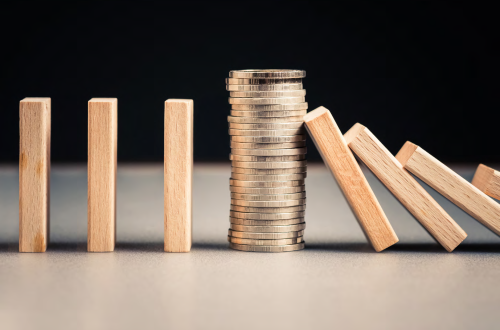What has changed in 2022?
Monthly House View - January 2023 - Download here
"Freedom must be won before freedom can be arranged"
Jean Cavaillès
After a year that was out of the ordinary in every respect, the temptation is strong to turn to 2023 in the hope of more favourable prospects. However, there are lessons to be learned from 2022 that can be fruitful for the future, notably what structural changes have been made.
Firstly, this was the year of history’s violent return. 2022 led us to definitively abandon the idea that peace and stability were a permanent feature of Europe. The historical rupture constituted by the invasion of Ukraine marks a lasting turning point for Europe: in the conception of its priorities, in its definition of power and its conditions (strategic autonomy, defence policy), and in its relationship to borders. Finally, it brings us back to a more classical conception of war as “the continuation of politics by other means” (Clausewitz). It then reminds us that before drawing up peace plans and organising the post-conflict period, it is the military balance of power on the ground that determines reality. Finally, it is also a warning about the future of Taiwan. Country risk will therefore remain central in 2023.
Secondly, 2022 was also the year of the return of politics, whether it be in China or in Europe. The policy orientations taken by Xi Jinping over the last two years clearly call into question the vision of China as an engine of global growth and a model of reformist pragmatism initiated by Deng Xiaoping. The shock of 2021-2022 for investors is the realisation that their analytical framework is becoming increasingly obsolete as ideology begins to supplant rationality, and that the accumulation of debt over the past 10 years and the restructuring of the real estate sector do not bode well for growth in the years to come. In Europe, the return of politics is reflected in a shift in prevailing ideas, where competitive policies seem to be giving way to strategic autonomy.
Thirdly, 2022 marked the return of scarcity: labour shortages, constrained value chains, energy rationing. This new equation is at the heart of the inflationary tensions we are experiencing, and constitutes a change of perspective in contrast to the model of abundant production and immediate availability that has prevailed until now. This prevalence of supply constraints marks the revenge of the so-called “classical” economists as opposed to the Keynesian economists who inspired a highly expansionary monetary and fiscal policy mix after the COVID-19 crisis.
Fourth, 2022 was undoubtedly a year of accelerating climate change. It is the year in which the changes have become the most visible and the most violent: from record heatwaves to forest fires, falling glaciers, drying rivers and devastating hurricanes.
What can economic and political history teach us as we look to 2023? What are the almost inevitable next steps in such a crisis? Inflationary phases usually result in increased social tensions, which are likely to punctuate the coming months. In Europe, we have already entered the political and social phase of inflation, in which reindexation pressures annihilate previous reform plans. Another lesson of the last decades is the likely return of sovereign risk; after a pandemic that increased public debt by 10 to 15 GDP points in the Western world, the energy crisis is also leading to increased deficits in Europe. However, with a less accommodating monetary policy, fiscal headroom is shrinking and the sustainability of the debt is no longer assured.
It is therefore on the corporate side that investors will continue to look to identify the main investment opportunities. After a surprisingly resilient 2022 in terms of margins, despite this stagflationary environment, 2023 should see a slowdown in profits, without, however, calling into question the attractiveness of equities and corporate bonds as the main sources of long-term performance.
Monthly House View, 23/12/2022 release - Excerpt of the Editorial
January 12, 2023




